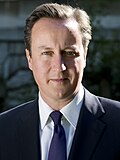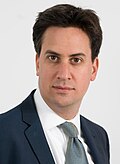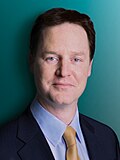5 May 2011 | |||||||||||||||||||||||||||||||||||||||||||||
All 36 metropolitan boroughs, 49 out of 55 unitary authorities, 194 out of 201 district councils, all 26 Northern Irish councils, and 5 directly elected mayors | |||||||||||||||||||||||||||||||||||||||||||||
|---|---|---|---|---|---|---|---|---|---|---|---|---|---|---|---|---|---|---|---|---|---|---|---|---|---|---|---|---|---|---|---|---|---|---|---|---|---|---|---|---|---|---|---|---|---|
| |||||||||||||||||||||||||||||||||||||||||||||
 The results in England. Northern Ireland results are not shown. White areas indicate elections were not held here in 2011. | |||||||||||||||||||||||||||||||||||||||||||||
The 2011 United Kingdom local elections were held on Thursday, 5 May. In England, direct elections were held in all 36 metropolitan boroughs, 194 second-tier district authorities, 49 unitary authorities and various mayoral posts, meaning local elections took place within all parts of England with the exceptions of seven unitary authorities (Cornwall, Durham, Northumberland, Isles of Scilly, Shropshire, the Isle of Wight and Wiltshire), and seven districts and boroughs (Adur, Cheltenham, Fareham, Gosport, Hastings, Nuneaton and Bedworth and Oxford). For the majority of English districts and the 25 unitary authorities who were "all-up" for election at the end of their four-year terms, these were the first elections since 2007. In Northern Ireland, there were elections to all 26 local councils. Elections also took place to elect members of most English parish councils.
Contents
- Background
- Results
- UK-wide results
- Summary of English result
- England
- Metropolitan boroughs
- Unitary authorities
- Non-metropolitan districts
- Mayoral elections
- Northern Ireland
- References
On the same day, elections to the Scottish Parliament, National Assembly of Wales and Northern Ireland Assembly were held. A UK-wide referendum [4] on whether to adopt the Alternative Vote electoral system for elections to the House of Commons and the Leicester South by-election was also held.
Labour, contesting its first elections under the leadership of Ed Miliband, finished narrowly ahead of the Conservatives. The BBC's projected national vote share put Labour on 37%, the Conservatives on 35% and the Liberal Democrats on 15%. [5] Rallings and Thrasher of Plymouth University put Labour narrowly behind on 37% of the national vote, compared to 38% for the Conservatives and 16% for the Liberal Democrats. [6]


